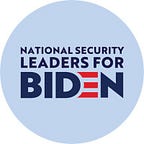International Man of… Misery
Commentary by Bruce S. Lemkin
One would think that a so-called successful international business mogul would understand, like it or not, that we live in a global, interdependent world.
Such a successful business leader would know that people will do business with you, if they like you, trust you, and respect you. Bullying at home or abroad generally does not garner much respect. Nor do declarations of “falling in love” with brutal despots and murderers help one’s ability to be viewed as a negotiating partner who can be trusted. Negotiating from a position of strength does not mean negotiating from a position of go-it-alone superiority and a reputation for breaking one’s word and abandoning commitments.
As proven over and over, from world wars to the defeat of powerful enemy nations, to the efforts to eliminate lethally slippery, transnational adversaries that we term terrorists, America cannot go it alone. Today, many threats to our nation include pernicious ones such as cyber warfare and pandemics of lethal diseases, that know no boundaries of national borders. Security from such threats requires international collaboration and cooperation. “America First” did not work 90 years ago, and it sure as heck won’t keep us safe now.
So, with all this in mind, how does the rest of the world view the United States these days? A reliable ally? A respected interlocutor across the negotiating table? Or a country that has had it too good for too long and is only in it for itself?
Having spent a considerable amount of my life working with our allies and partners to build stronger security relationships, as well as successfully negotiating with countries such as China and North Korea, I scratch my head as I observe the unfocused, unprepared, incohesive, approach to international relationships taken by the current administration. The lack of consultation and cooperation with our traditional allies prior to embarking on speculative initiatives is not only disappointing and harmful to the trust that is so important to the reliability of our alliances, it is mind-boggling. And it is sad — and even more so as I heard from a number of friends in senior positions in several countries around the world, “if we cannot depend on the United States for leadership, we will have turn to someone else. But to whom?”
Let’s be realistic. We have many rivals and a growing number of adversaries — and how is that going for us? Our record on the COVID-19 pandemic, the growing trade deficit, weakening (with a few exceptions) alliances and partnerships, and the ability — even if we had the intention — to lead the world in collaborative efforts to defeat common threats and solve common problems is, to be blunt, catastrophic.
The first priority of the President of the United States is supposed to be the security of our nation and, as the head of state, the face of our country to the world. While there also are supposed to be checks and balances on presidential power and discretion, by the legislative and judicial branches, the Founding Fathers, in their wisdom, recognized that, ultimately, it is the American people who will decide, after four years, whether a commander-in-chief’s performance warrants another four years of representing and leading our nation. The wise men who wrote our Constitution also recognized the danger of the “man on the white horse,” who, after being swept into office, might abuse his power and prove inept in executing that power. And while we took a chance on a self-proclaimed business leader and deal-maker in 2016, the record of the past four years, culminating in where we find ourselves today — internationally and domestically — not only gives us the opportunity to change horses, but the choice before us allows the election of a proven, experienced, respected leader . A true statesman who will restore America’s reputation, while providing for our security and success, as a member — and leader — of the world community.
— — — — — — — — — — — — — — — — — — — — — — — — — — — — — —
The author was a senior U.S. defense official and international negotiator. He is a member of The Council on Foreign Relations and of National Security Leaders for Biden. The views expressed in this commentary are those of the author.
